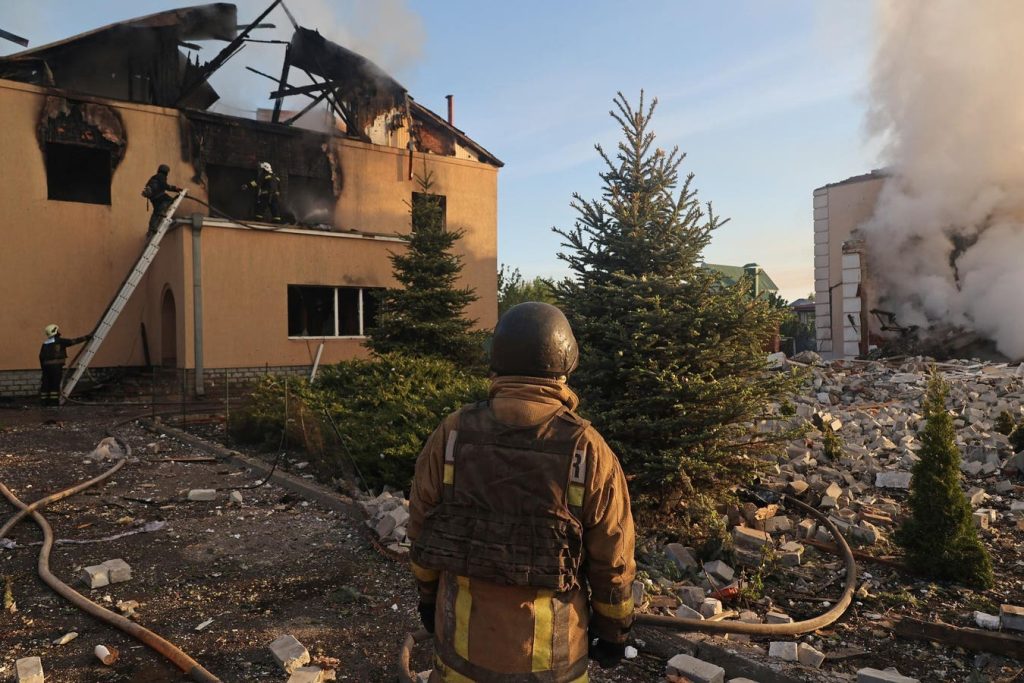In the ongoing conflict in Ukraine, Russian forces have launched a large-scale offensive towards Vovchansk in the Kharkiv province. The attack has advanced three miles west of the town, prompting Ukrainian reserve units to retaliate. While the United States does not anticipate a breakthrough, there are concerns that Russia may expand its assault. President Volodymyr Zelenskyy condemned the attack, stating that Ukrainian forces are fighting back against the occupiers with artillery and drones in an effort to defend their territory.
In the Dnipropetrovsk region, Russian shelling resulted in the deaths of two individuals and injuries to eight others in Nikopol on May 9. Missile attacks also caused damage to multiple buildings, homes, a kindergarten, and a fire department. In the neighboring Kharkiv region, one person was killed and another injured by Russian artillery in Kupiansk. Additionally, a school stadium was bombed on May 8, injuring seven individuals, including children who were playing outside. The relentless attacks have brought further devastation to the already war-torn regions.
Efforts to rescue Ukrainian children from Russian-occupied areas continue, with 11 more children recently brought back from the Kherson region. Save Ukraine, a volunteer group, has been instrumental in rescuing a total of 315 children since the start of the invasion. The exact number of abducted or displaced children remains unknown, but estimates suggest that nearly 20,000 children have been impacted by the conflict. The Children of War platform, operated by the Office of the President of Ukraine, aims to address the needs of these vulnerable children and reunite them with their families.
Ambassadors from EU countries have reached an agreement to allocate revenues from frozen Russian bank assets to Ukraine, pending approval by ministers. The majority of the funds, 90%, will be directed towards Ukrainian defense expenditures, with the remaining 10% allocated for other purposes. European Commission President Ursula von der Leyen emphasized the significance of using these funds to enhance security in Ukraine and across Europe. Meanwhile, Ukraine’s Deputy Minister of Justice, Iryna Mudra, revealed that approximately $280 billion of Russian assets are held by G7 and EU financial institutions, with two-thirds already identified. Frozen assets in countries such as Belgium, Luxembourg, France, Germany, the U.S., Japan, the UK, Switzerland, and Canada could potentially provide Ukraine with billions of dollars in the coming years.
The allocation of funds from frozen Russian assets serves as a crucial step in supporting Ukraine’s defense efforts and economic recovery. As the conflict continues to take a toll on the country, international support is vital in ensuring stability and security in the region. The ongoing attacks by Russian forces have resulted in significant casualties and widespread destruction, highlighting the urgent need for humanitarian aid and diplomatic efforts to bring about peace. Despite the challenges faced by Ukraine, the resilience and determination of its people, along with the support of international allies, offer hope for a resolution to the conflict and a path towards rebuilding and healing.


